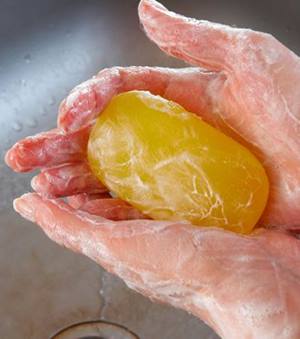by Jeanette Padilla
When you start to read the fine print, it becomes very clear that avoiding animal products in non-food items is nearly impossible. It’s hard enough trying to navigate through food items to avoid eating something containing animal byproducts; avoiding animal products in non-food items is an entirely different challenge. A growing number of individuals are becoming part-time vegetarians and opting for meatless meals one or more days a week. This growing trend is a welcomed one since it will help lead to healthier lifestyles, less livestock-produced methane and happier animals. However, many individuals are not aware of the many animal-derived ingredients used in common everyday products, some of which you’d never guess contain animal ingredients.
Toothpaste
Glycerine, also known as glycerin or glycerol, is a common ingredient in toothpaste. It’s present in nearly every brand of toothpaste as well as in many beauty products. Glycerin can be sourced from animals or vegetables, which makes it tricky when trying to avoid animal products. Animal-derived glycerine comes from the fatty tissue of animals. The fat contains triglyceride molecules, each of which contains three fatty acid chains all connected to a glycerol base. When processed, the bonds between the fatty acids and the glycerol are broken and glycerine results as a byproduct.
Soap
The majority of all bar soaps contain animal-derived tallow. This is what gives them the ability to moisturize. Some individuals choose to use tallow soap because of specific allergies. However, most people using bar soap won’t ever realize that they’re washing with animal fat. If you’re using a large brand of bar soap, chances are, your soap has tallow in it. Current Dove soap bars list the ingredient as “sodium tallowate.”
Shampoo
Glycerin may not be the only animal-derived ingredient in your personal care products. According to information from PETA, there may be over 20 animal-derived ingredients in your shampoo. Ingredients may include “panthenol,” “vitamin B” and “amino acids,” all of which can be derived from animals.
Fabric softener
Tallow or tallowate is the fat derived from animals such as cows, sheep, pigs and horses. The fat is rendered down and after a few chemical alterations is added to fabric softeners like Downey. On the bottle, it’s labeled as “dihydrogenated tallow dimethyl ammonium chloride.” What it really is: fat coating your clothing.
Plastic bags
Animal ingredients in cosmetics, beauty products, and similar products isn’t too far-fetched, but how about in plastic bags? Yes, even plastic bags have animal-derived ingredients. Animal fat is added to plastic bags, such as those you get at the grocery store, pharmacy, retail stores and just about everywhere really. The fat serves as a “slip-agent” and is added to a large array of other plastics as well. Yet another reason to forego plastic bags and switch to reusable bags made from animal-friendly materials.
Animal fat is used in a large variety of products, from cosmetics and personal care products to plastics and even some electronics. The fat typically comes from cows, pigs, sheep or horses. Additionally, some products are processed using animal components even though they may not be a part of the final product. Food items such as sugar are processed using cow and horse bones, and beer and wine are clarified using fish bladders, also known as isinglass. Vegetable-sourced substitutions are available to be used in place of all of these animal-derived components; however, using animal-derived components is far cheaper. Natural News.



